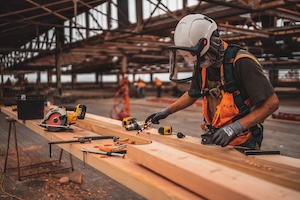The Crucial Role of Owners in Construction Projects: Beyond Financial Transactions
Updated: Nov 22, 2023
During a building site meeting, an architect and general contractor disagreed about the project's complex challenges. The owner stepped in, saying he would oversee the work, take care of the money, and manage both sides of the dispute because he had recently begun a building project. This viewpoint emphasizes the owners' complex involvement, which goes beyond business dealings to determine the project's course.
Understanding Risk Allocation in Construction Contracts:
Construction contracts use risk allocation to define obligations, liabilities, and responsibilities. Improper transfer of obligations often leads to criticism, with non-professional owners bearing the financial burden.
Essential Owner Duties and Responsibilities:
Owners are responsible for many things beyond just writing cheques.
Providing Financing:
Owners must secure funds for construction payments and unforeseen issues, requiring careful financial planning to avoid scheduling and payment disagreements.
Site Surveys:
The owner is responsible for providing accurate data for site surveys, ensuring task execution, and preventing disputes due to erroneous information, including property lines and soil makeup.
Warranting Plans and Specifications:
Usually, owners are liable for flaws and provide a warranty on the suitability of the designs and specifications. Having accurate and comprehensive documentation is crucial because errors can result in expensive delays and legal action.
Owner-Furnished Materials:
Owners guarantee that the materials they supply are appropriate for the intended use. Timely coordination and submission of necessary information are critical to ensuring smooth project progression and avoiding disagreements.
Disclosing Superior Knowledge:
Owners must reveal any superior knowledge that may influence the project. It is vital to communicate clearly because not doing so could put you in legal trouble.
Action on Clarifications and Changes:
Avoiding delays in the construction process requires prompt settlement of clarifications and adjustments. Change orders are a frequent cause of disagreements and need to be handled carefully.
Interpreting Documents:
Owners frequently have the last say regarding choices about time, money, and quality, even though architects may manage technical issues. This emphasizes how important it is for owners to understand how to interpret project papers.
Cooperating with the Contractor:
Owners have an implied duty to refrain from impeding or impeding the contractor's work. Even though it may appear simple, cooperation can be difficult when goals about time, money, and quality clash.
Selecting Professionals:
The selection of specialists by the owner, such as architects, contractors, and legal counsel, significantly influences the project's outcome. For the best possible cooperation, adequate supervision and coordination are essential.
Interacting with Governmental Bodies:
To navigate complex regulatory environments, owners must communicate with neighborhood associations, zoning authorities, and inspection agencies. Significant delays may result from a failure to resolve these issues correctly.
Building better homes requires mastery of various skills and risk management. Despite obstacles, success is achievable with professional help and an open mind. Owners play a crucial role in creating lasting landscapes, ensuring no pain equals no benefit.
You might also like

